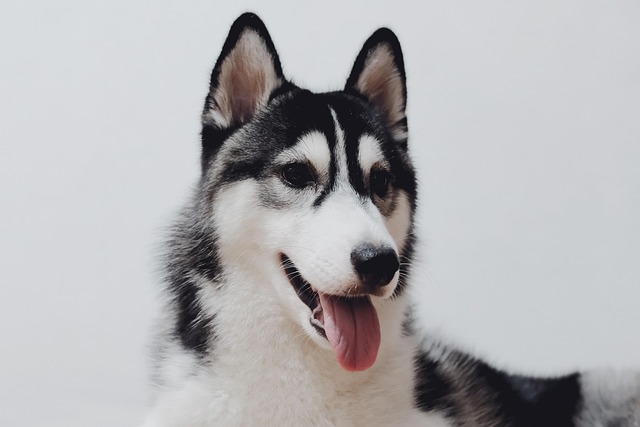
What is glaucoma in a dog?
You might notice your dog squinting more at mealtime or avoiding bright sunlight—these small changes could be early signs of a serious eye condition.
In daily life with dogs, it is the habit of every pooper to pay attention to their every move. If one day you find that your dog keeps running towards the water bowl and drinking water more frequently, you will inevitably feel worried. After all, the health of a dog always touches the owner's heart, and any abnormal behavior may be a signal from the body that we need to take seriously and explore carefully.
From a normal physiological perspective, a dog's body cannot function without sufficient hydration. Water is involved in the metabolism of dogs' bodies, such as maintaining body temperature, digesting food, delivering nutrients, and excreting waste, all of which require the assistance of water. In general, the daily water intake of dogs is related to factors such as their weight, age, and activity level. For example, in the hot summer, a lively and active large dog will naturally drink more water than usual to replenish its body after playing outdoors for a long time and losing a lot of water. Or for lactating female dogs, as they need to secrete milk to feed their puppies, their body's demand for water increases significantly, and drinking water frequently is also a normal phenomenon. Watching a dog gulp down water, replenish its hydration, and regain its vitality, the owner will feel much more at ease. This is a reflection of the dog's healthy and energetic lifestyle.
However, frequent drinking of water by dogs may also be a sign of illness. Diabetes is one of the common causes. When a dog is suffering from diabetes, the body cannot use the glucose in the blood normally, leading to an increase in blood sugar. In order to eliminate excess sugar, the kidneys increase their workload and produce more urine, causing dogs to urinate frequently and feel thirsty, requiring them to drink plenty of water to replenish fluids. If you find that a dog not only drinks water frequently, but also has an increased appetite but also loses weight, becomes lethargic, and even has sweet urine, you should take it to a veterinarian for blood sugar testing and other related examinations as soon as possible. Once the diagnosis of diabetes is confirmed, the owner should help the dog stabilize the condition through diet control, drug treatment and other methods according to the veterinary advice. Every time I see my dog become lethargic due to illness, the owner feels uneasy and hopes to quickly identify the cause and restore the dog's former liveliness.

Kidney disease cannot be ignored either. The kidneys are an important excretory organ in dogs, and once their function is compromised, their ability to regulate water and electrolytes will decrease. In order to maintain water balance in the body, dogs emit thirst signals, prompting them to drink water frequently. Kidney disease may also cause symptoms such as increased or decreased frequency of urination, abnormal urine color, and edema. Early detection and treatment are crucial for kidney disease. Owners should pay more attention to their dogs' daily behavior and physical condition, and take them for regular check ups to detect potential health hazards in a timely manner. If a dog unfortunately suffers from kidney disease, in addition to actively cooperating with treatment, special attention should also be paid to diet, choosing specialized foods suitable for dogs with kidney disease, reducing protein and phosphorus intake, and reducing the burden on the kidneys.
Endocrine disorders may also lead to dogs drinking water frequently. For example, hyperthyroidism and excessive secretion of thyroid hormones can accelerate a dog's metabolism, increase energy consumption, and lead to thirst, excessive drinking, and frequent urination. This situation also requires veterinarians to diagnose the cause through professional examination and develop corresponding treatment plans.
In addition to disease factors, dogs' living environment and dietary habits can also affect their water consumption. High temperature and dry environments can accelerate the evaporation of water from dogs' bodies, so they naturally need to drink more water to replenish. If the salt content in dog food is too high, it can also cause thirst. Therefore, owners should create a comfortable living environment for their dogs, adjust indoor temperature and humidity according to weather changes, and pay attention to healthy eating. They should choose high-quality and nutritionally balanced dog food and avoid feeding their dogs high salt and high oil foods.
The reasons behind dogs drinking water frequently are complex and diverse. As a owner, one should always pay attention to their dog's behavior and interpret their body language with love and patience. When a dog drinks water abnormally, don't panic first, carefully observe if there are any other accompanying symptoms, and seek veterinary help in a timely manner if necessary. Only in this way can we better protect the health of dogs, accompany them through every happy time, let dogs grow strong under our care, and become the warmest and most loyal companions in life.

You might notice your dog squinting more at mealtime or avoiding bright sunlight—these small changes could be early signs of a serious eye condition.

Let’s set the scene: It’s a sweltering Phoenix afternoon—105°F outside—and you rushed your 2-year-old Lab mix, Cooper, on a quick walk to “get it over with.”

Let’s get real: You’re in your Miami apartment, watching your 3-year-old Corgi, Loki, struggle to climb the stairs to your second-floor unit.

Many dog owners brush off occasional scratching as just “dog behavior,” but persistent itching often signals something more—like a food allergy.

You might first notice your dog scratching more than usual—chewing at their paws until the fur looks thin, or rubbing their face against the couch nonstop.

Let’s be real: You’re standing in your Chicago apartment, watching your 3-year-old Beagle, Max, huff and puff just to climb onto the couch.